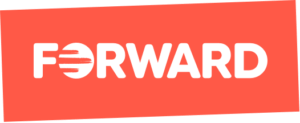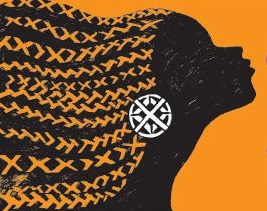FORWARD’s New Multinational Project
This month FORWARD is delighted to begin work on one of our biggest projects yet! TuWezesha Akina Dada – Africa UK Young Women’s Leadership and Empowerment Movement is a three year project that will include activities in Kenya, Somaliland, Uganda, Tanzania and the UK. It will be implemented by FORWARD in collaboration with Akina Mama wa Afrika in Uganda, Sub-Sahara Advisory Panel (SSAP) in Wales and Young Women’s Leadership Institute (YWLI) in Kenya.
The Partners
Akina Mama wa Afrika is a non-governmental organisation whose mission is to contribute to the full equality of all African women, by strengthening their individual and collective leadership and by forming strategic partnerships to tackle patriarchy and promote a just and secure Africa. SSAP is a charity with the mission to inspire and inform policy and practice which will in turn lead to the reduction of poverty and the achievement of sustainable livelihoods in Africa. Finally, YWLI is a trust that would like to nurture the leadership of young women and create spaces for their participation in policy processes. This involves equipping young women and girls with feminist leadership skills, creating spaces for them to lead social change.




So what’s the project?
The overall aim of this project is to fulfil sexual and reproductive health and rights of African girls and women globally and to attain gender equality, freeing girls and young women from all forms of violence. Physical, sexual and psychological harm to females are all forms of gender based violence (GBV) and are fuelled and shaped by social norms as well as religious and traditional beliefs and practices. These include female genital mutilation (FGM), child marriage, domestic and sexual violence and trafficking. Over 100 million girls are affected by FGM in Africa, which also has the highest prevalence rate for child marriages, and yet they do not have access to the support and care that they need. Most of these forms of violence are transnational and straddle Africa and Europe.
Who will the project serve?
There will be over 1,000 young women between the ages of 18 and 35 living across the four countries in East Africa involved in the projects, as well as African Diaspora young women in the UK. Indirectly 3,000 more girls and young women will benefit through the spread of social change communication and outreach activities.
Why this project?
This project seeks to catalyse actions that will enable girls and young women to enjoy freedom from all forms of violence and be able to attain their potential in life. It will address social norms, engaging men, community stakeholders, policy makers and development partners to help transform structures that fuel VAWG. The project has five chief outcomes:
Firstly, for young women to be empowered leaders and for them to be able to influence and shape decisions about their rights and entitlements. Four leadership development activities will be introduced and a mentoring initiative will be developed with mentors assisted to engage and support young female leaders. Collaboration of diaspora young women with young female leaders in East Africa will be facilitated and communication materials along with stories of mentors and young women leaders will be disseminated.
Secondly, for young women’s peer networks and organisations to foster spaces that amplify their rights, and for the young women to be protected from all forms of gender based violence. This will be achieved by supporting the setup of networks in all four countries so that peer to peer support as well as training and outreach action can be strengthened, and this will be done in established safe spaces. A sub regional network of young women will be facilitated and this will have information on girls’ rights as well as prevention and responses to gender based violence. Finally a small grant programme will be developed to target the peer networks and young women’s advocacy action.
Thirdly, for communities to have increased awareness about social norms that perpetuate VAWG and for them to be engaged in tackling it. Youth led community outreach action will be facilitated as well as campaign action targeting men and boys. In addition multiple media platforms will be engaged concerning the rights of girls and young women, including social media reporting.
Fourthly, for governments and development partners to be more accountable and committed to protecting and responding to girls and young women’s right to be free from all forms of violence. This will be achieved through evidence based advocacy action and policy briefs, and by coordinating joint action with national and global initiatives on child marriage, FGM and violence against children. Government actions will be jointly monitored and campaign actions calling for the implementation of existing Gender Based Policies will be supported.
Finally, for consortium members to have improved organisational capacity and for them to be effective in delivering the programme on the rights of young women. Multiple training sessions will be delivered to consortium members in line with organisational development strategies, and consortium structures and plans of action will be developed. In addition, evidence based resources will be collated and disseminated including online and in print.

